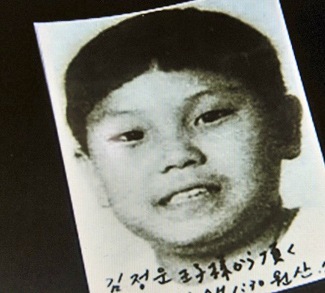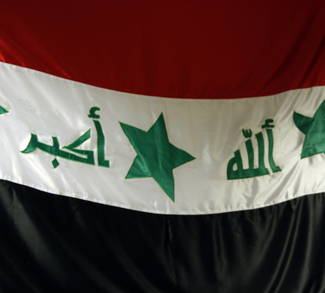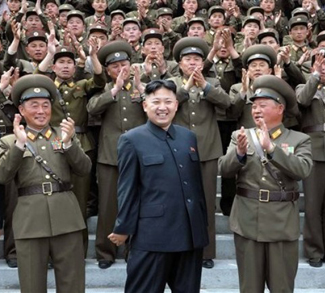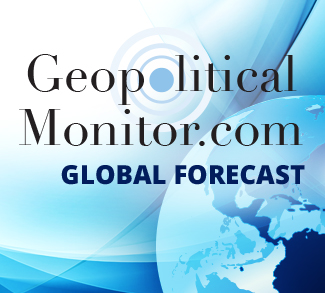FORECAST
Buried within North Korea’s recent intransigence is evidence of a coming paradigm shift in Sino-North Korean relations.
It is easy to dismiss North Korea’s never-ending stream of vitriol as the logical product of an autocratic regime, but the situation on the Korean peninsula remains very combustible. While the secretive nature of the regime makes it hard for anyone to know for certain, most analysts believe that recent bellicosity is being fueled by Kim Jong Il’s desire to shore up support leading up to the succession of his son, Kim Jong Un. This succession may come sooner rather than later given Jong Il’s increasingly sickly appearance.
In the past, whenever North Korea starts a new slide into international isolation, governments the world over look towards Beijing to exercise its supposed influence over the North Korean leadership. However, China’s failure to reign in the North Korean regime begs the question: Does the ‘post-communist’ China have any real sway over Pyongyang?
It should be stressed that it is in China’s interests to bring North Korea back to the negotiating table and temper the regime’s renegade behavior. Beijing does not want a nuclear arms race in Asia, a re-militarized Japan, or to appear to have no influence over North Korea on the world stage. Above all, China does not want the North Korean regime to collapse, an event that would bring a torrent of refugees across the border into China.
Thus, it seems quite possible that China has no real influence over the North Korean regime. While this at first seems unlikely given North Korea’s economic dependence, one must take into account China’s fear of state collapse in North Korea. The North Korean leadership knows that when push comes to shove, Beijing would not dare cut one of the last economic lifelines that Pyongyang has.
China’s inability to influence the regime and North Korean domestic politics will both contribute to continued intransigence moving forward. The North Korean leadership seems to be returning to the ideology of juche, or self-sufficiency, possibly in anticipation of a further breach in Sino-North Korean relations. The few pieces of a free market system that exist within North Korea – mostly established after the famines of the 1990s – are being attacked and disassembled by the Korean Workers Party. In this, it seems that Chinese goods are being singled out. For example, the government is claiming that Chinese make-up is giving people blisters and cookies are making people sick.
The conservative siege mentality in domestic politics might result in violent conflict on the peninsula. Luckily, North Korean nuclear weapons are still not sufficiently miniaturized to put on a missile, but conventional clashes with South Korean forces, in particular along the sea-border, should not be ruled out.
As for when, if ever, North Korea will start behaving more like a conventional actor within international society, the process of succession is a critical determinant. Kim Jong Un’s youth and relative inexperience will make him an easy target of manipulation after his father’s death, but moving past the process of succession itself could ease North Korean brinkmanship. After power is successfully handed over, there will no longer be so much pressure to tow a hard-line because the fear of post-Kim Jong Il reform movements and factional power grabs will dissipate. Perhaps Kim Jong Un will surprise everyone and preside over an opening up of North Korean society.
Of course, it is also possible that the process of succession may not go smoothly, resulting in internal chaos and possibly even state collapse. This is one of the worst case scenarios for peace and prosperity in Asia.
SUMMARY OF EVENTS: June 29 – July 6, 2009
NORTH AMERICA
Canada
Canadian diplomats were tipped weeks before Afghanistan passed its so-called rape law but did not alert their political masters, newly released documents indicate.
United States
The United States ordered Tuesday sanctions on an Iranian-based firm for allegedly aiding nuclear-armed North Korea’s missile program, and accused the two nations of joint arms proliferation.
Goldman Sachs has played a crucial role in creating every market bubble since the 1920s — and has profited from not only the bubbles, but from the crash that followed as well, says a new expose in Rolling Stone magazine.
The world’s largest oil company is continuing to fund lobby groups that question the reality of global warming, despite a public pledge to cut support for such climate change denial, a new analysis shows.
A just-amended lawsuit alleges six additional instances of unprovoked attacks on Iraqi civilians by Blackwater contractors.
CENTRAL AMERICA AND THE CARIBBEAN
Honduras
Ousted Honduran President Manuel Zelaya vowed to return to Honduras later this week as violent clashes flared here, while international pressure grew for him to be restored to power.
Honduran military personnel briefly detained seven journalists, temporarily shut down several local broadcasters, and intermittently blocked the broadcast signals of international news channels in the aftermath of the weekend coup that ousted President Manuel Zelaya.
The Honduran congress has given police expanded powers to move against opponents of the military-backed interim government in the wake of a coup which deposed the elected president.
Honduras’ Supreme Court rebuffed a personal appeal from the Americas’ top international diplomat Friday, refusing to restore ousted President Manuel Zelaya before a Saturday deadline.
SOUTH AMERICA
Colombia
The Colombian government of President Alvaro Uribe is facing questions about its handling of the war against the country’s FARC rebels following a UN report that accuses Colombian soldiers of systematically killing innocent people for a cash reward.
EASTERN EUROPE
Russia
Russia on Monday started its biggest military exercises in the Caucasus since its war with neighbouring Georgia last year, mobilising thousands of troops in a clear warning to its foes.
MIDDLE EAST
Iran
Iran said it has freed five local British embassy staff arrested on accusations of stoking post-election unrest, a move that further threatened tense ties with London and the West.
Iran on Wednesday stepped up its campaign against dissenters, shutting down a reformist newspaper, but presidential election runner up Mir Hossein Mousavi continued to challenge the results.
Iran’s defeated candidate Mir-Hossein Mousavi said that he will disclose “tell-all documents” proving fraud and irregularities in Iran’s recent presidential election, local satellite Press TV reported on Thursday.
A senior Iranian cleric warned on Friday that detained British embassy staff would face trial for their alleged role in post-election unrest, and EU countries summoned Iranian envoys to protest against the detentions.
Iraq
Hours after U.S. troops handed over control of Iraq’s cities to its domestic security forces, a car bomb in the northern city of Kirkuk killed at least 32 people and wounded more than 100 on Tuesday, police said.
Israel
Amnesty International said on Thursday Israel inflicted “wanton destruction” in the Gaza Strip in attacks that often targeted Palestinian civilians during an offensive in December and January in the Hamas-run enclave.
Former U.S. lawmaker Cynthia McKinney and several other human rights activists remain in an Israeli prison after refusing to sign a deportation form that they claim is self-incriminating.
Turkey
Turkish civilian leaders and top generals met Tuesday as tension simmered over an alleged military plan to discredit the Islamist-rooted government and moves in parliament to curb the army’s powers.
EAST ASIA
North Korea
North Korea test-fired four short-range missiles on Thursday, further stoking already high regional tension due to its nuclear test and threats to boost its nuclear arsenal in response to UN sanctions.
North Korea fired three missiles off its eastern coast Saturday, South Korea said, in what was likely to be seen as a message of defiance to the United States on its Independence Day holiday.
South Korea
North Korea seems to be pressing ahead with uranium enrichment, with a view to making more nuclear weapons, Yonhap agency said on Tuesday, citing South Korea’s defense minister.
SOUTH ASIA
Afghanistan
Thousands of U.S. Marines and hundreds of Afghan troops poured into Taliban-infested villages of southern Afghanistan with armor and helicopters Thursday in the first major operation under President Barack Obama’s strategy to stabilize the country.
U.S. Marines suffered their first casualties of a massive new military campaign Thursday as they engaged in sporadic gunbattles along 55 miles of Taliban-controlled heartland in southern Afghanistan.
AFRICA
Nigeria
Nigeria’s main militant group said its fighters had attacked an oil facility belonging to Royal Dutch Shell in the Niger Delta on Monday, days after President Umaru Yar’Adua proposed an amnesty.




